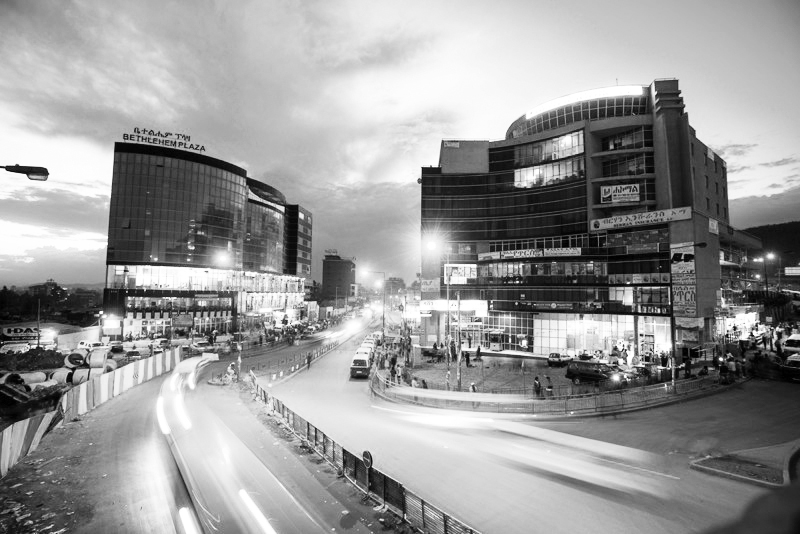
A meeting planned for Addis Ababa in April was meant to diversify artificialintelligence conferences, but the push for greater participation continues.
Computer scientists from around the world had planned to converge in Addis Ababa in late April for the first major artificial-intelligence (AI) conference to be held in an African country. But like most other scientific gatherings, the conference was virtual, depriving Ethiopia of a powerful opportunity to boost its research environment.
Organizers had had high hopes for this year’s International Conference on Learning Representations (ICLR), an annual event focusing on the AI technique of deep learning. Holding it in Ethiopia was meant to make it more accessible to researchers who cannot readily get visas to Western countries, where these meetings are often held.
“It was sad for everybody,” says Esube Bekele, an Ethiopian-born computervision architect at In-Q-Tel, Arlington, Virginia. After two years of preparations, the ICLR board was “super eager” to travel to Ethiopia, he says.
“Africans and the institutions in Africa missed a chance to make connections and secure important collaborations,” says computer scientist Meareg Hailemariam at Addis Ababa University.
The meeting would also have had enormous symbolic meaning for those who have been pushing for AI to become more diverse in terms of geography, race, gender, sexual orientation and physical accessibility – while inspiring the region’s youth to pursue studies in machine learning and data science.
“Over the last few years, we’ve seen this great growth in awareness, both in how representation is lacking in AI and also in terms of AI bias itself,” says Animashree Anandkumar, head of machine-learning research at the technology company NVIDIA in Los Angeles, California.
Silver lining
The virtual venue that took Addis Ababa’s place did have its advantages. At least in places with a fast-enough internet connection, online workshops can be easier to take part in for people who cannot afford travel, or for those with children or disabilities, Anandkumar points out.
“It’s a broader kind of inclusion,” says Shakir Mohamed, a South African-born computer scientist at the AI powerhouse DeepMind in London who was the meeting’s senior programme chair. Part of the ICLR’s mission, he says, is “to break that barrier, to engage different communities”.
And participants in the virtual conference generally praised the organizers for running a productive meeting.
The first ICLR took place seven years ago as the deep-learning revolution was beginning to take off. The technique, which trains artificial neural networks with vast amounts of data, now powers technologies ranging from surveillance cameras to automated translation.
But in recent years, visa issues have blocked many participants, often from developing countries, from attending AI meetings. The Canadian government was criticized in 2018 for turning down visa applications for NeurIPS, another major AI meeting, which was held in Toronto. That spurred a push to hold a meeting in an African city, spearheaded by a group of researchers called Black in AI.
Addis Ababa seemed like a natural candidate. The city has experience in welcoming large international delegations: it is the seat of the continental organization, the African Union. And it has hosted important scientific conferences, including one on HIV/AIDS in 2011 and an International Astronomical Union symposium in 2019.
Hassle-free visas
Bekele, who is part of Black in AI, says that the idea of hosting ICLR there encountered some resistance at first. “People were pushing back and saying, ‘They don’t have the infrastructure or Internet connection.’”
Others were looking forward to attending. “Addis Ababa is one of the best places to organize a conference in Africa,” says El Mahdi El Mhamdi, a computer scientist at the Swiss Federal Institute of Technology in Lausanne, who has travelled to meetings in the city and several others on the continent. El Mhamdi, who is a Moroccan national, says he has long had to endure the hassle and the uncertainty of visa-application procedures — and has often given up altogether trying to fly to conferences in countries such as Canada, the United Kingdom and the United States. Ethiopia is one of the countries where he could have received a visa with relative ease, he says.
“Had the conference happened physically in Addis Ababa, it would have demonstrated the capacity of the city to host such events and also would encourage such conferences to come to Africa as frequently as possible,” Hailemariam says.
But holding the conference in the city could have had significant local impact as well, Hailemariam adds. Many Ethiopian students are enthusiastic about working in machine learning, he says. And the technology start-up scene in the capital, although growing, is still too small to make use of that potential.
Talented Ethiopian students are often forced to emigrate because of a lack of local opportunities, says Kommy Weldemariam, an Ethiopian national who is chief scientist for IBM’s Africa Labs in Nairobi. But having a meeting in town – and being face to face with leading researchers – could help in establishing connections and finding external thesis advisers, for example, says Weldemariam.
And a high-profile conference can attract the attention of political leaders, he says. “The hope I had was that local political leaders, including the ministry of education and all the research-based ministries, could have seen how science works in the world,” Weldemariam says.
The dream of hosting an ICLR meeting in Addis Ababa lives on. “Once big conferences are in-person again, we’ll push for 2022,” Bekele says.
Source: Nature.com
Caption: The Ethiopian capital Addis Ababa was meant to host the International Conference on Learning Representations in April.Credit: Yannick Tylle/Getty
The Ethiopian Herald May 28, 2020
BY DAVIDE CASTELVECCHI





